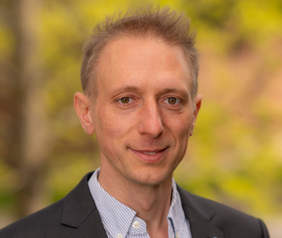Biochemist Prof. Dr. Simon Elsässer from the Karolinska Institutet in Solna, Sweden, is one of this year’s recipients of an Alexander von Humboldt Professorship. He is one of the world’s leading scientists in the technological and methodological advancement of epigenetics and synthetic biology. With the funding of 5 million euros, Elsässer will further strengthen and expand the key research area ‘Signals of Life’ at the University of Freiburg over the next five years.
“We are delighted that Simon Elsässer has been awarded the Humboldt Professorship 2026,” says Prof. Dr. Kerstin Krieglstein, Rector of the University of Freiburg. “The fact that he is able to join us now as part of the Humboldt Professorship is a particularly fortunate coincidence: Our Centre for Integrative Biological Signalling Studies (CIBSS) received confirmation of its continued funding in May. Simon Elsässer will thus have an ideal environment for his innovative, ground-breaking research and will be able to make a significant contribution to further strengthening the Cluster of Excellence and our entire key research area ‘Signals of Life’.”






